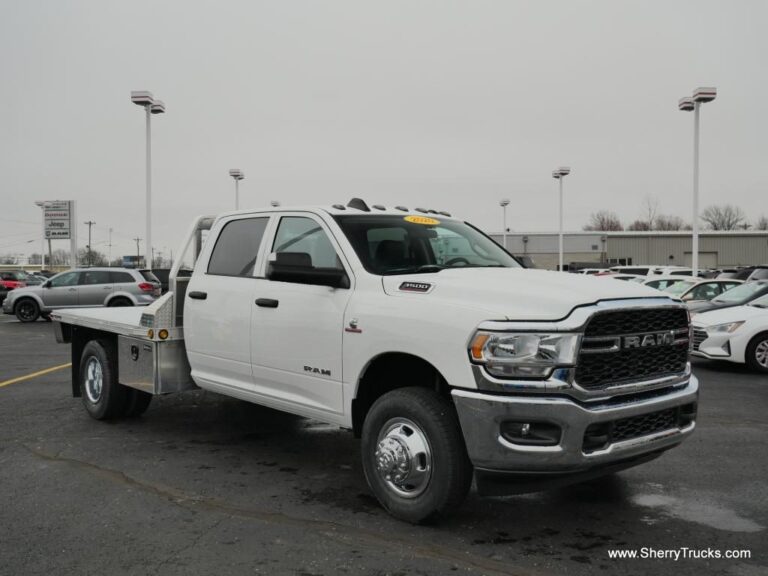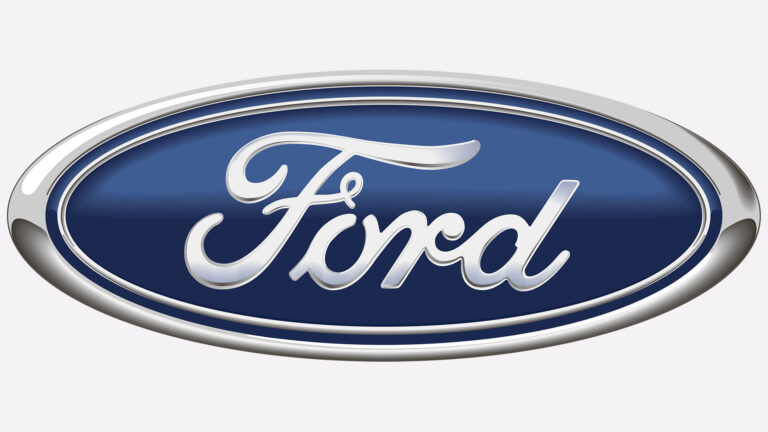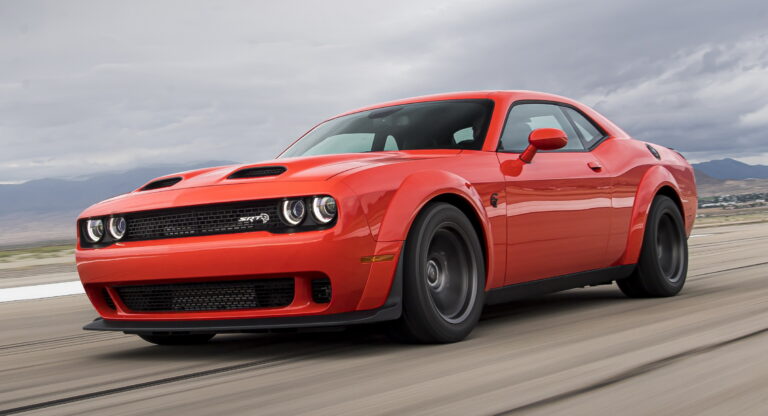1 Ton Dually Trucks For Sale: Your Ultimate Buying Guide
1 Ton Dually Trucks For Sale: Your Ultimate Buying Guide cars.truckstrend.com
Introduction: The Unmatched Power of the 1 Ton Dually
In the world of heavy-duty vehicles, few sights command as much respect and signify as much capability as a 1-ton dually truck. With its distinctive dual rear wheels on each side of the axle, often referred to as a "dually," these formidable machines are purpose-built for the most demanding tasks. Whether you’re a commercial hauler, an avid RV enthusiast, a rancher moving livestock, or a contractor transporting heavy equipment, a 1-ton dually offers an unparalleled combination of stability, payload capacity, and towing prowess that standard trucks simply cannot match.
1 Ton Dually Trucks For Sale: Your Ultimate Buying Guide
The "1-ton" designation, while largely nominal in modern automotive terms (actual capacities far exceed 2,000 lbs), refers to trucks in the Class 3 category, specifically the 3500 (Ram), 350 (Ford), or 3500HD (Chevrolet/GMC) series. These trucks are designed to handle immense loads with confidence, providing the peace of mind that comes from superior engineering and robust construction. If you’re in the market for a vehicle that can truly work as hard as you do, exploring 1-ton dually trucks for sale is your first step towards unlocking a new level of capability. This comprehensive guide will walk you through everything you need to know to make an informed decision.
What Makes a Dually a "1 Ton"? Understanding Classifications and Capacities
The "1 Ton" label is a historical reference to a truck’s approximate payload capacity, dating back to a time when trucks were more simply classified by their load ratings (1/2-ton, 3/4-ton, 1-ton). Today, a modern 1-ton dually truck can often carry payloads well over 4,000 pounds and tow upwards of 30,000 pounds, depending on the configuration.
Key metrics to understand when evaluating a 1-ton dually:
- Gross Vehicle Weight Rating (GVWR): The maximum permissible weight of the fully loaded truck, including the vehicle itself, fuel, passengers, and cargo. For 1-ton duallies, GVWR typically ranges from 11,500 lbs to 14,000 lbs.
- Gross Combined Weight Rating (GCWR): The maximum allowable weight of the fully loaded truck and its attached trailer. This is a critical figure for serious towers and can easily exceed 40,000 lbs for a dually.
- Payload Capacity: The maximum weight of cargo and passengers a truck can carry in its bed and cab. This is calculated as GVWR minus the truck’s curb weight.
- Towing Capacity: The maximum weight a truck can safely tow, usually specified for conventional (bumper-pull) and fifth-wheel/gooseneck trailers. Dually trucks excel in the latter, offering massive towing figures.

The dual rear wheels are the defining characteristic that enables these higher capacities. By distributing the load over four tires on the rear axle instead of two, duallies provide:
- Increased Stability: Wider stance and more rubber on the road reduce sway, especially with tall or heavy trailers.
- Higher Load Rating: Each tire carries less individual load, allowing for greater overall payload and towing capacity.
- Enhanced Safety: In the event of a tire blowout on one of the rear wheels, the other tire can often maintain stability, reducing the risk of a loss of control.

Why Choose a 1 Ton Dually? Key Benefits
The decision to opt for a 1-ton dually is driven by specific needs that demand superior performance and safety.

- Superior Towing and Hauling Capability: This is the primary reason. If you regularly pull large fifth-wheel RVs, gooseneck livestock trailers, multi-car haulers, or heavy construction equipment, a dually is not just an option—it’s often a necessity for safe and legal operation.
- Enhanced Stability and Control: The wider footprint and additional tires significantly reduce trailer sway, especially in crosswinds or when passing/being passed by large vehicles. This translates to a more confident and less fatiguing towing experience.
- Increased Payload Capacity: For those who carry heavy loads in the truck bed (e.g., slide-in campers, large toolboxes, pallets of materials), a dually provides the necessary payload rating.
- Improved Tire Integrity and Longevity: Spreading the load across more tires reduces the stress on each individual tire, potentially leading to longer tire life and reducing the risk of blowouts under heavy loads.
- Robust Drivetrain and Chassis: 1-ton duallies are built with heavy-duty components throughout, from the frame and suspension to the axles and transmission, ensuring durability and longevity under strenuous use.
Key Considerations When Shopping for a 1 Ton Dually
Purchasing a 1-ton dually is a significant investment, and careful consideration of your specific needs is paramount.
1. Define Your Purpose
- Primary Use: Will it be for towing a specific RV, commercial hauling, agricultural work, or a combination? Your primary use will dictate engine choice, cab style, and bed length.
- Load Requirements: Accurately estimate the weight of your trailer (fully loaded) and any cargo in the truck bed. Always err on the side of caution and aim for a truck with capacities that comfortably exceed your maximum anticipated load.
2. Engine Type: Diesel vs. Gasoline
- Diesel Engines: The dominant choice for heavy-duty duallies.
- Pros: Massive torque at low RPMs (ideal for towing), better fuel economy under load, superior engine braking, longer lifespan if properly maintained.
- Cons: Higher initial purchase price, more expensive maintenance (oil changes, DEF fluid), fuel costs can fluctuate.
- Gasoline Engines: Less common in duallies but still available.
- Pros: Lower initial cost, cheaper and simpler maintenance, often quieter operation.
- Cons: Less torque (especially at low RPMs), significantly worse fuel economy when towing heavy loads, may struggle more with extreme weights.
- Recommendation: For serious, regular heavy towing, diesel is almost always the preferred choice. For occasional heavy loads or lighter commercial use, a gas engine might suffice and save you money upfront.
3. Cab Style and Bed Length
- Cab Style:
- Regular Cab: Two doors, maximum seating for 2-3. Best for maneuverability, shortest wheelbase, often the most affordable.
- Extended Cab (Quad Cab/Double Cab): Two full-size front doors and two smaller rear doors, seating for 5-6. Offers some rear passenger space or secure interior storage.
- Crew Cab (Mega Cab/CrewMax): Four full-size doors, most spacious rear seating for 5-6. Ideal for families or work crews, but the longest wheelbase.
- Bed Length:
- Short Bed (approx. 6.5 ft): Less common on duallies, but available. Can be problematic for towing some fifth-wheel trailers without a sliding hitch.
- Long Bed (approx. 8 ft): The standard and recommended choice for dually trucks, especially for fifth-wheel and gooseneck towing, as it provides ample clearance between the cab and the trailer.
4. Drivetrain: 2WD vs. 4WD
- 2WD (Two-Wheel Drive): Lighter, slightly better fuel economy, lower initial cost. Suitable if you operate exclusively on paved roads.
- 4WD (Four-Wheel Drive): Essential for off-road conditions, unpaved job sites, snowy/icy roads, or launching boats on slippery ramps. Adds weight, complexity, and cost.
5. Budget: New vs. Used
- New Trucks: Latest technology, full warranty, customizable options. Highest price point.
- Used Trucks: Significant savings, but require more diligent inspection.
- Consider: Mileage, condition, maintenance records, previous use (commercial vs. personal). A well-maintained used dually can be an excellent value.
- Certified Pre-Owned (CPO): Offered by dealerships, these used trucks undergo rigorous inspections and come with a manufacturer-backed warranty, offering a good balance of value and peace of mind.
6. Maintenance History and Inspection
For used duallies, this is critical. Request detailed service records. A pre-purchase inspection by a trusted, independent mechanic specializing in heavy-duty trucks is highly recommended. They can identify potential issues with the engine, transmission, differentials, and suspension that might be costly to repair.
Where to Find 1 Ton Dually Trucks For Sale
- Dealerships (New & Used): Authorized dealerships for Ford, Ram, Chevrolet, and GMC are the primary sources for new trucks and often have a selection of used ones.
- Online Marketplaces: Websites like Autotrader, Cars.com, CarGurus, and eBay Motors offer vast inventories from both dealerships and private sellers.
- Specialized Heavy-Duty Truck Dealers: Some dealerships focus specifically on commercial and heavy-duty vehicles, potentially offering a wider selection and more knowledgeable staff.
- Auctions: Government surplus auctions, commercial fleet auctions, or public auto auctions can sometimes yield good deals, but buying at auction carries higher risk as vehicles are typically sold "as-is."
- Private Sellers: Check local classifieds (online and print) or social media marketplaces. Private sales can offer lower prices but require more caution and due diligence on the buyer’s part.
The Buying Process: Tips for a Smooth Purchase
- Research Extensively: Compare models, trims, engine options, and capacities across brands. Read reviews and watch comparison videos.
- Set a Realistic Budget: Factor in not just the purchase price, but also sales tax, registration, insurance, and potential maintenance or upgrades.
- Inspect Thoroughly: For used trucks, a detailed visual inspection is crucial. Look for signs of neglect, rust, fluid leaks, uneven tire wear, and listen for unusual noises during the test drive.
- Test Drive Under Load (If Possible): If you’re buying specifically for towing, ask if you can test drive the truck with a heavy trailer attached, even if it’s just a dealer’s utility trailer. This will give you a real feel for its performance.
- Check VIN History: Utilize services like Carfax or AutoCheck to review the vehicle’s accident history, reported mileage, previous owners, and service records.
- Negotiate Smartly: Be prepared to negotiate the price. Research market values beforehand and be firm but fair. Don’t be afraid to walk away if the deal isn’t right.
- Understand Financing and Insurance: Secure pre-approval for financing if needed. Get insurance quotes before finalizing the purchase, as premiums for heavy-duty trucks can be higher.
Potential Challenges and Solutions
While the benefits are significant, owning a 1-ton dually comes with a few considerations:
- Fuel Economy: Dually trucks, especially diesels, offer better economy under load, but their sheer weight and larger engines mean lower MPG in unladen daily driving compared to lighter trucks.
- Solution: Understand this trade-off. If you don’t frequently tow or haul, a dually might be overkill for daily commuting.
- Maneuverability and Parking: Their larger size and wider rear stance make them less agile in tight parking lots or urban environments.
- Solution: Practice driving and parking. Utilize parking sensors, backup cameras, and 360-degree cameras (if equipped) to aid in maneuvering. Plan your routes to avoid overly tight spaces.
- Tire Costs: Six tires instead of four means higher replacement costs.
- Solution: Budget for tire replacement. Research tire brands and types suitable for heavy-duty use to find the best balance of cost and longevity. Proper inflation and rotation are key.
- Maintenance Costs: Heavy-duty components can be more expensive to replace, and diesel engine maintenance can be specialized.
- Solution: Follow the manufacturer’s recommended maintenance schedule diligently. Budget for these costs as part of ownership. Consider extended warranties for new trucks.
1 Ton Dually Trucks For Sale: Estimated Price Guide
Please note that prices for 1-ton dually trucks vary wildly based on brand (Ford Super Duty, Ram Heavy Duty, Chevrolet Silverado HD, GMC Sierra HD), specific model year, mileage, condition, trim level (e.g., XL, XLT, Lariat, King Ranch, Limited, Tradesman, Big Horn, Laramie, Lone Star, SLT, Denali, LT, High Country), engine type, 2WD/4WD, and region. The table below provides estimated ranges to give you a general idea.
| Condition/Age Category | Estimated Price Range (USD) | Key Considerations |
|---|---|---|
| Used (10+ years old, High Mileage) | $15,000 – $30,000 | High mileage (200k+ miles), potential for significant wear and tear. Essential to get a thorough pre-purchase inspection and service records. Great value for budget buyers. |
| Used (5-10 years old, Mid Mileage) | $30,000 – $55,000 | Moderate mileage (100k-200k miles), likely well-maintained. Still offers significant savings over new. Look for service history and signs of heavy commercial use. |
| Used (1-4 years old, Low Mileage) | $55,000 – $75,000 | Low mileage (under 100k miles), excellent condition. Often still under powertrain warranty or eligible for CPO programs. Strong value proposition. |
| Certified Pre-Owned (CPO) | $60,000 – $85,000 | Manufacturer-backed warranty, multi-point inspection. Offers peace of mind similar to new but at a lower price. Limited availability for duallies. |
| New (Base Trim) | $60,000 – $75,000 | Basic work truck features, essential capabilities. Good for those needing raw power without luxury. |
| New (Mid-Range Trim) | $75,000 – $90,000 | Adds comfort, technology, and convenience features. Most popular choice for a balance of utility and amenities. |
| New (Top Trim/Fully Loaded) | $90,000 – $110,000+ | All available options, premium interiors, advanced safety tech, and luxury features. Represents the pinnacle of dually truck offerings. |
(Prices are estimates and can vary significantly based on market demand, regional differences, and specific vehicle features.)
Frequently Asked Questions (FAQ)
Q1: What’s the difference between a 2500/250 and a 3500/350 (1-ton)?
A1: The 2500/250 (3/4-ton) is a heavy-duty truck, but the 3500/350 (1-ton) typically has a higher GVWR, GCWR, payload, and towing capacity. The most notable difference is that 1-ton trucks are available in a dually configuration (dual rear wheels), which is critical for maximum stability and capacity, while 3/4-ton trucks only have single rear wheels.
Q2: Do I really need a dually, or can a 3/4-ton truck do the job?
A2: If you are consistently towing fifth-wheel or gooseneck trailers that exceed 15,000-20,000 lbs, or carrying heavy slide-in campers that push payload limits, a dually is highly recommended for safety, stability, and legal compliance. For lighter towing (under 15,000 lbs) or less frequent heavy hauling, a 3/4-ton might suffice. Always check the specific weight ratings of your trailer and the truck.
Q3: Are dually trucks hard to drive?
A3: They are larger and wider than standard trucks, which can make maneuvering in tight spaces (parking lots, drive-thrus) more challenging. However, on the open road, especially when towing, their increased stability often makes them feel more planted and easier to control than lighter trucks. It takes some getting used to, but most drivers adapt quickly.
Q4: What’s better for a dually: diesel or gas?
A4: For the vast majority of 1-ton dually owners who tow heavy loads regularly, a diesel engine is superior due to its higher torque, better fuel economy under load, and engine braking capabilities. Gasoline engines are a more affordable option if your heavy towing is infrequent or your loads are at the lower end of the dually’s capacity.
Q5: How much does insurance cost for a dually?
A5: Insurance costs vary widely based on your location, driving record, coverage limits, and the specific truck. Generally, 1-ton duallies can be more expensive to insure than smaller vehicles due to their higher value and potential for greater damage in an accident. Get multiple quotes from different providers.
Q6: Can I use a dually as a daily driver?
A6: Yes, many people do, especially those who live in rural areas or have active lifestyles that frequently involve hauling. However, be prepared for lower fuel economy (when not towing), challenges with parking, and a less "nimble" driving experience compared to a car or lighter truck.
Q7: What are the main brands to consider when looking for a 1-ton dually?
A7: The primary manufacturers offering 1-ton dually trucks in the North American market are Ford (F-350 Super Duty Dually), Ram (3500 Heavy Duty Dually), and General Motors (Chevrolet Silverado 3500HD Dually and GMC Sierra 3500HD Dually). All offer competitive capabilities, and the choice often comes down to brand loyalty, specific features, and aesthetic preference.
Conclusion: Investing in Unrivaled Capability
Searching for "1 Ton Dually Trucks For Sale" means you’re looking for more than just a vehicle; you’re seeking a robust partner capable of tackling the most demanding tasks. These trucks represent the pinnacle of consumer-grade towing and hauling capability, offering unparalleled stability and peace of mind when moving heavy loads.
By understanding the nominal "1-ton" classification, diligently evaluating your specific needs, considering the pros and cons of different engine types and configurations, and performing thorough inspections, you can navigate the market confidently. Whether new or used, a well-chosen 1-ton dually is an investment that provides immense utility, enhancing your work, your adventures, and your ability to move what matters most, safely and efficiently.






